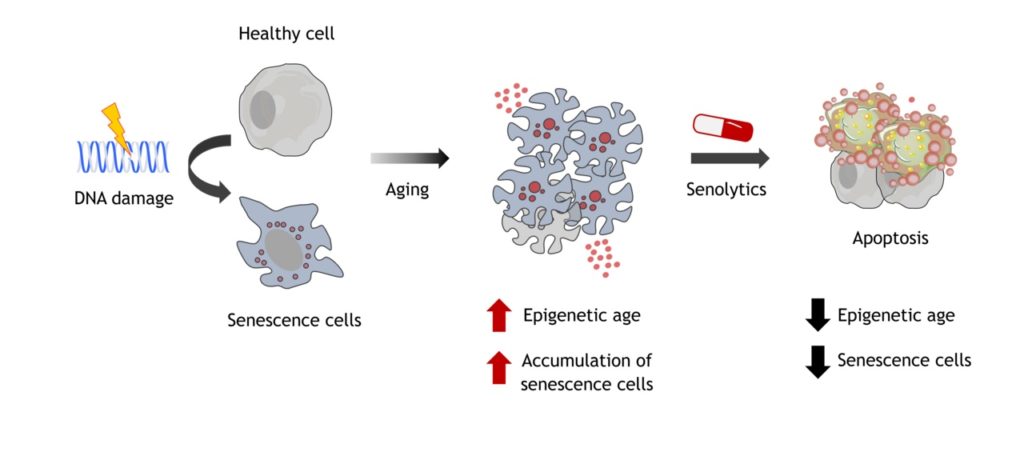Longevity Supplements: New Research Reveals What the Longest-Lived People Take
A new study reveals the supplements taken by centenarians — people who live to be 100 years or older.
According to a survey of nearly 3,000 centenarians, the most common supplements taken are
- Calcium
- Protein
- Multivitamin
- Iron
- Zinc
- Vitamin A/D
- DHA Fish oil
Centenarians maintain a surprising degree of functional independence and often exhibit a delayed onset of age-related diseases. For scientists, this makes centenarians living blueprints for successful aging. Understanding the factors that contribute to their exceptional longevity is a critical area of research, encompassing genetics, environmental influences, and lifestyle choices.
Within these lifestyle factors, dietary habits and the use of nutritional supplements have garnered significant attention. While the general population frequently uses dietary supplements for various health reasons, their role in the lives of those who achieve extreme old age remains less explored. A new study sheds light on this intriguing aspect of their daily lives.

The Centenarian Supplement Cabinet
To examine the supplement intake of centenarians, researchers from Singapore and the United States drew on the Chinese Longitudinal Healthy Longevity Survey (CLHLS), an extensive survey that has tracked the health and longevity of older adults for many years. Specifically, the researchers analyzed data from a substantial sample of 2,877 centenarians, comprising 2,169 females and 708 males. The survey collected self-reported information on various aspects of the centenarians’ lives, including their use of dietary supplements.
The results showed that the prevalence of dietary supplement use among centenarians is relatively low. Approximately 10.7% of female centenarians and 12.3% of male centenarians reported using dietary supplements. This suggests that, for the vast majority of centenarians in China, dietary supplements are not a regular part of their daily regimen. With that being said, the most frequently reported supplements were:
- Calcium: With a prevalence of about 7%, calcium supplements were the most common choice among both male and female centenarians. This aligns with the well-known importance of calcium for bone health, particularly in older age.
- Protein: Protein supplements were the second most popular, with approximately 5% of centenarians reporting their use. Adequate protein intake is crucial for maintaining muscle mass and overall physical function, which are vital for healthy aging.
- Multivitamins: Multivitamin use was reported by around 3% of the centenarian population studied, suggesting a general interest in ensuring a broad spectrum of nutrient intake.
Dietary supplements taken by 2% or less of centenarians included iron and vitamin A/D. Additionally, docosahexaenoic acid (DHA), an omega-3 fatty acid often associated with brain and heart health, was among the least commonly used supplements, with a prevalence of only 0.5%.

Supplement Use Patterns
Supplement use was generally consistent, with many reporting that they took them “often.” The duration of supplement use ranged from 2 to 10 years, suggesting many centenarians had been using their chosen supplements for a significant period. Interestingly, the majority of supplement users reported consuming only a single type of supplement, rather than a complex regimen of multiple products.
These findings collectively paint a picture of dietary supplement use among Chinese centenarians that is characterized by a low overall prevalence, a focus on a few key nutrients such as calcium and protein, and a tendency towards single-supplement use. This contrasts with trends observed in younger older adult populations in other parts of the world, where supplement use is often much higher and more varied.
Are These Really “Longevity Supplements?”
In many Western countries, particularly the United States, dietary supplement use is widespread among older adults, with some surveys indicating that over 70% of adults over 60 consume supplements. The stark contrast observed in this centenarian population suggests that, for those who achieve extreme longevity in China, dietary supplements may play a less prominent role in their health and well-being strategies.

This raises the question of whether dietary supplements are necessary for living a long life. Based on the findings of this study, it would not seem so. The authors of the study say,
“It is unclear whether supplement use contributed in any meaningful way to the participants’ extended lifespan, or whether it was simply a coincidental behavior adopted in life. Individuals who are exceptionally long-lived may be more inclined to adopt health-promoting behaviors, such as taking supplements, rather than such behaviors being a driver of their longevity.”
One intriguing aspect of the findings is that many centenarians who did use supplements reported starting their consumption only after reaching their centenarian status. This suggests that even in extreme old age, individuals may turn to supplements to address specific health challenges or support general well-being, rather than as a lifelong preventative measure. Many of the supplements chosen address common deficiencies amongst elderly populations.
“Real” Longevity Supplements
A fundamental distinction exists between supplements designed to address specific nutrient deficiencies and those that may enhance longevity. Several nutrient deficiencies are surprisingly common, including iron, zinc, and vitamin D deficiency. These deficiencies are often addressed through supplementation, diet, or sunlight (in the case of vitamin D). In contrast, longevity-enhancing supplements are designed not merely to restore health, but to proactively slow down the aging process and extend healthy lifespan.

Some of the most prominent longevity supplements under investigation include senolytics, which are compounds that target senescent cells. Senescent cells are thought to build up throughout the body with aging, contributing to the chronic inflammation that supports multiple age-related diseases, including cardiovascular disease, neurodegenerative disorders, and cancer. Another longevity compound is rapamycin, a repurposed FDA-approved drug that inhibits mechanistic target of rapamycin (mTOR).
Longevity compounds like senolytics and mTOR inhibitors may be considered “real” longevity interventions because they have been shown to extend the lifespan of model organisms without replenishing depleted nutrients. However, there are not yet any studies showing that these interventions prolong the lifespan of humans.

